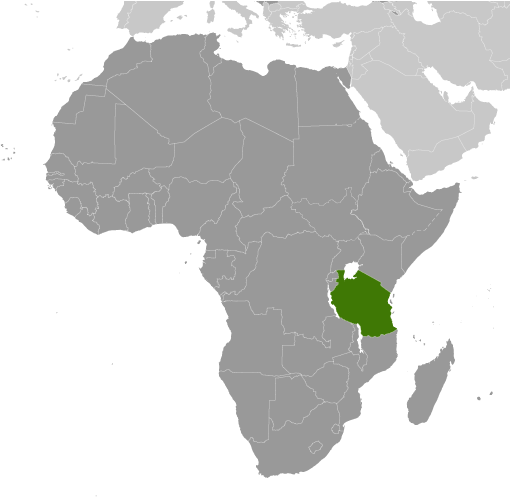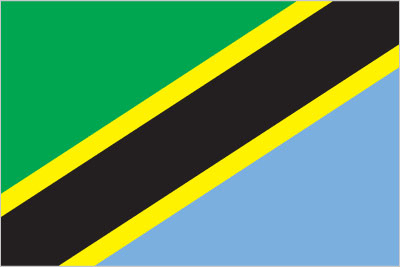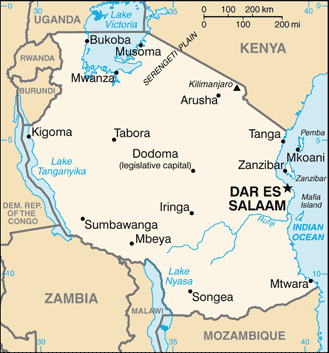Tanzania
Opportunity For All works with Room to Read to construct schools in Tanzania. Our first schools will be built in 2014. This is a new country for Room to Read who commenced operations there in 2011.
Situated in East Africa, the United Republic of Tanzania boasts a long coastline on the Indian Ocean and borders eight other African nations: Kenya, Uganda, Rwanda, Burundi, Democratic Republic of the Congo, Zambia, Malawi and Mozambique. The country achieved its official independence from colonial rule in 1961, and now includes the islands of Zanzibar and Pemba. Its vast natural resources include minerals, wildlife, many lakes, arable land and forests.
Unlike many of its neighbors, Tanzania has enjoyed a long period of relative political stability despite extremely high levels of poverty. According to the most recent data, 89% of Tanzanians live on less than US$1.25 per day. Above all, The 2009 Human Development Report, which measures achievement on three basic dimensions—life expectancy, education and per capita gross domestic product—ranked Tanzania 151st of 182 countries.
Much of the country’s population has been affected by the persistent epidemics of malaria and HIV, which are the leading causes of death for children and adults, respectively.
Tanzanian literacy rates at the completion of primary school are 63% in Kiswahili and 30% in English. Upon the start of secondary school, the language of instruction switches entirely to English—Tanzania’s business language. This presents a tremendous challenge for many students, many of whom have yet to master reading and writing in Kiswahili.
Gender equality is another significant educational challenge in Tanzania, with girls’ pass rate from both primary and secondary school lagging greatly behind that of their male peers.
Situated in East Africa, the United Republic of Tanzania boasts a long coastline on the Indian Ocean and borders eight other African nations: Kenya, Uganda, Rwanda, Burundi, Democratic Republic of the Congo, Zambia, Malawi and Mozambique. The country achieved its official independence from colonial rule in 1961, and now includes the islands of Zanzibar and Pemba. Its vast natural resources include minerals, wildlife, many lakes, arable land and forests.
Unlike many of its neighbors, Tanzania has enjoyed a long period of relative political stability despite extremely high levels of poverty. According to the most recent data, 89% of Tanzanians live on less than US$1.25 per day. Above all, The 2009 Human Development Report, which measures achievement on three basic dimensions—life expectancy, education and per capita gross domestic product—ranked Tanzania 151st of 182 countries.
Much of the country’s population has been affected by the persistent epidemics of malaria and HIV, which are the leading causes of death for children and adults, respectively.
Tanzanian literacy rates at the completion of primary school are 63% in Kiswahili and 30% in English. Upon the start of secondary school, the language of instruction switches entirely to English—Tanzania’s business language. This presents a tremendous challenge for many students, many of whom have yet to master reading and writing in Kiswahili.
Gender equality is another significant educational challenge in Tanzania, with girls’ pass rate from both primary and secondary school lagging greatly behind that of their male peers.



For general information about Tanzania, please look at the following:
• Wikipedia, Tanzania
• U.S. Department of State, Tanzania
• UNICEF, Tanzania
• CIA Factbook, Tanzania
• Wikipedia, Tanzania
• U.S. Department of State, Tanzania
• UNICEF, Tanzania
• CIA Factbook, Tanzania